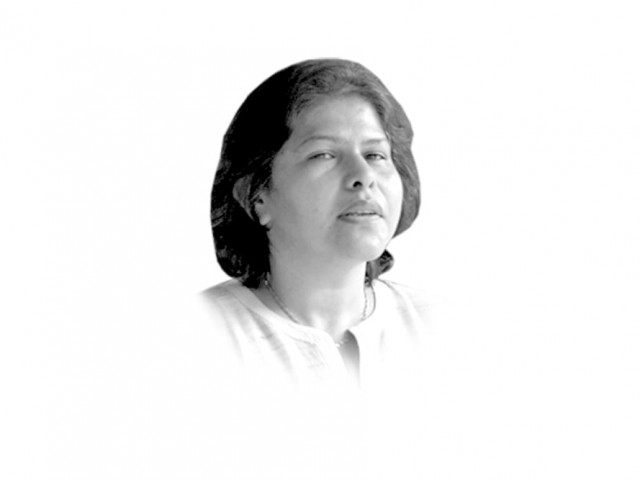
However, the advertisement drew my attention towards another equally serious matter of mushrooming of think tanks in the country, especially Islamabad. While we complain about mushrooming of television channels that add to our depression rather than increase our knowledge, no one has looked into the think tank industry that seems to have added no real value to policymaking or our understanding of Pakistan or the world at large. In fact, most think tanks in Islamabad cannot be accused of what their title claims to do — thinking. I would also like to add that having a view and expressing it in seminars and conferences is not the same as serious thinking or research and analysis that a think tank is supposed to accomplish.

The business started to grow gradually in the end of the 1990s when the Islamabad Policy Research Institute was set up to enhance quality of research in the public sector. While the Institute of Regional Studies contributed at a snail’s pace with its database on regional issues, the Institute of Strategic Studies was known for bureaucratic control and, hence, redundant analysis. This was the period when there were only two or three key private think tanks in town known for their particular ideological perspective.
The real expansion of think tanks as an industry took place during the mid- and late-2000s. A lot of people seemed to have joined the bandwagon since then — from retired diplomats and generals and intelligence agency plants, to political party members and even influential journalists. But something common amongst most think tanks in town is the poor quality of research which is supposedly their key product. In fact, even those think tanks that were known for better quality research seem to have moved away and focused mainly on networking, advocacy and attracting funds. The amount of money that a particular organisation has depends on the head and whom can he or she can talk into investing in the venture.
The international community was also keen on investing in structures with the help of which it could communicate and interact with Pakistan’s state and society. Thus, it is not surprising to find foreign governments and other donors providing resources for new think tanks or financing Track-II junkets, some of which are well financed and provide first class hospitality to the participants. Unfortunately, such opportunities seem to have been squandered and turned into an exercise of financial gratification of a handful of people. The stories of embezzled research funds or conflict of interest are heart wrenching. The level of accountability in this sector is abysmal. More important, there is no sign of improvement in research standards or products that would make people think.
The poor quality is directly linked with the larger issue of authoritarian control of certain critical sectors of society, especially those that produce information or add to it in any shape or form. When you have intelligence agency plants running think tanks without any proper qualification, their natural focus becomes the cosmetics rather than the main task they claim to do. I am also reminded of one particular think tank where women employees are forced to wear Western clothes and shake hands with men because the task is to groom and produce a product that can interact with the Western world and capture attention rather than engage in a serious conversation.
But foreign governments are not the only contributors as the Pakistani state and the ‘deep state’ have great interest in controlling the thinking process. The process of setting up new think tanks in Islamabad and even other cities like Lahore after the mid-2000s makes sense because the business was considered a vital tool to engage with both, the inside and the outside world. The ‘deep state’ ambitiously wants to create people with good networking skills who can interact with the international community, influence the thinking process at home and also penetrate international think tanks where possible. They have been partially successful in these three above-cited objectives. In fact, they have even managed to find partners in think tanks in Western countries, in particular, to push the ‘deep state’s’ agenda. Today, the think tank business will not be conducted without providing some help to the ‘deep state’. Nevertheless, the more critical problem is the way such attitude goes counter to efforts to build the capacity of the nation to think, which is already crushed under the weight of an environment where thinking is sin and people will be shot dead for their faith or providing access to justice to people.
So, another think tank that ensures Sharia and ‘deep state’ compliance will just be adding to what exists already. It will not enhance the capacity of policymakers and ordinary people to think but close their minds so they can’t think at all.
Published in The Express Tribune, May 29th, 2014.
Like Opinion & Editorial on Facebook, follow @ETOpEd on Twitter to receive all updates on all our daily pieces.
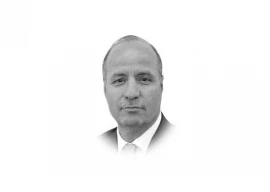






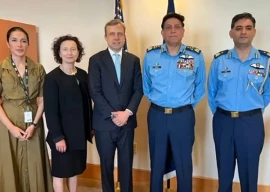

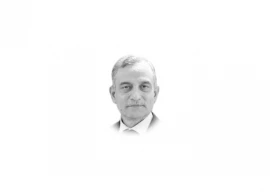
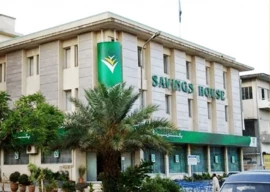
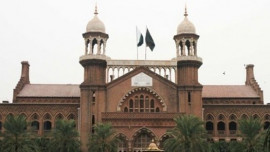

COMMENTS
Comments are moderated and generally will be posted if they are on-topic and not abusive.
For more information, please see our Comments FAQ